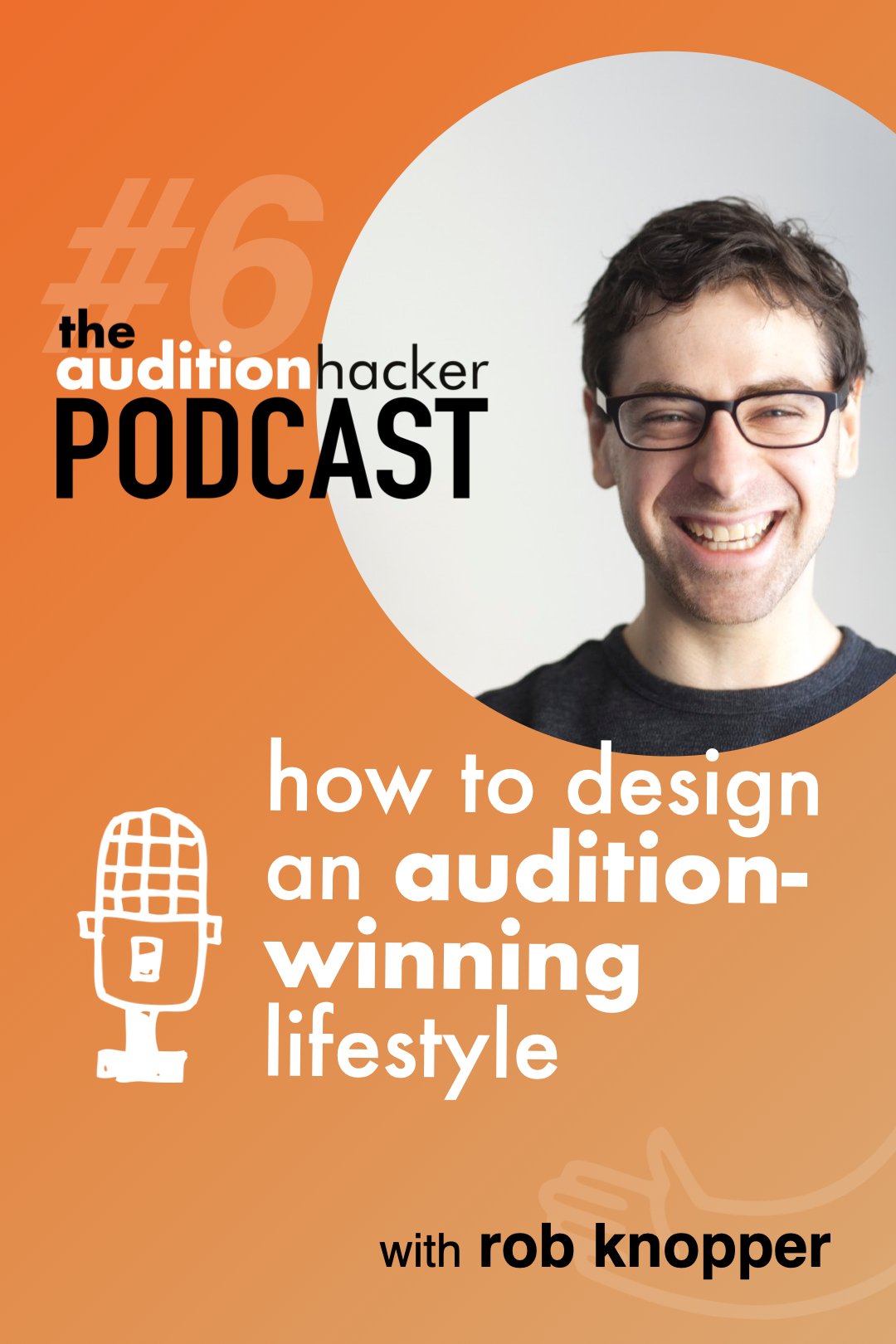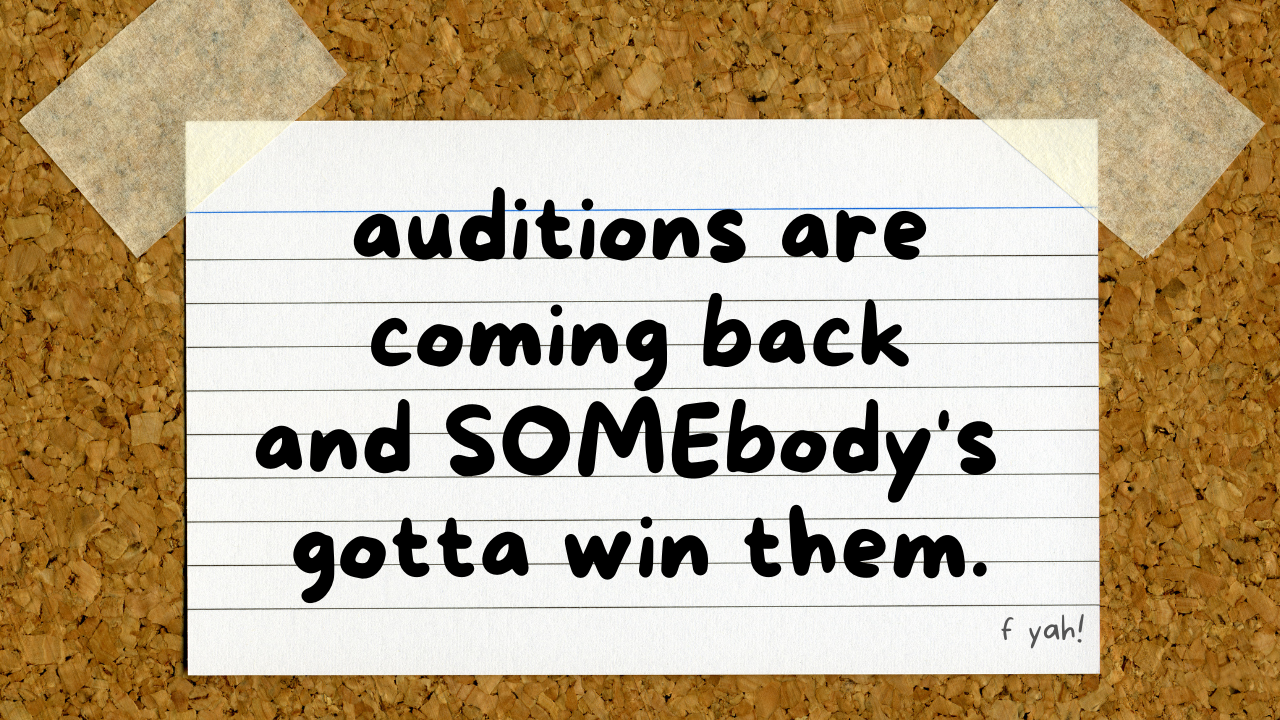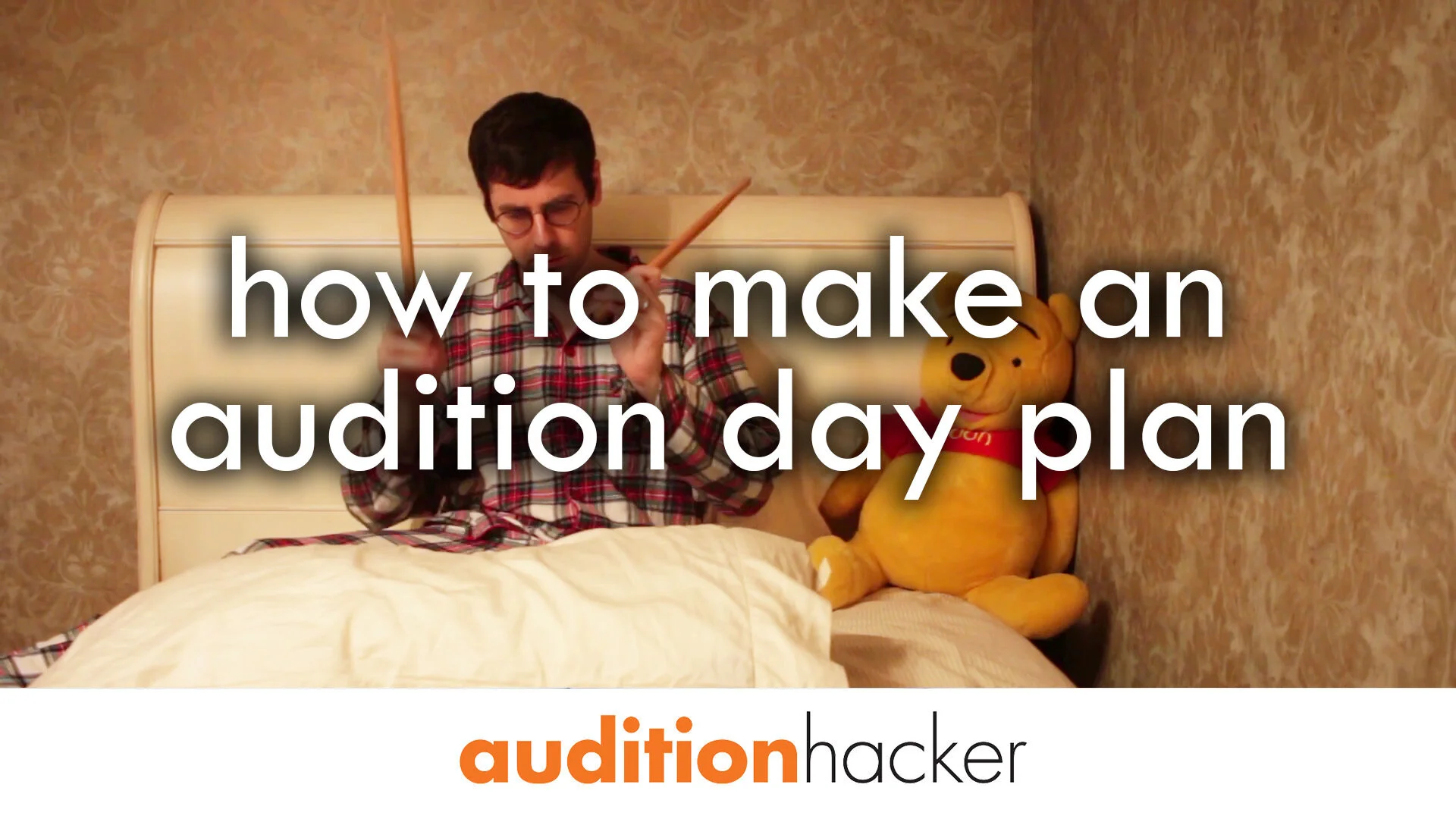welcome to the 12 days of auditions! it's my new video series where each day i cover a different topic on how to take auditions. here's what's coming up:
day 1: (today!) how to take an orchestra audition in 7 steps
day 2: how to make a sleek and impressive resume
day 3: how to plan your audition preparation
day 4: how to make an audition tape
day 5: how to organize your preparation
day 6: how many hours a day should i practice?
day 7: the perfect daily practice session
day 8: how to research excerpts
day 9: how self-recording changed my life
day 10: the ultimate guide to sight-reading
day 11: how to get rid of nerves
day 12: the pros and cons of beta blockers
each day there will be a video, and some days there will be an accompanying blog. today's one of them. below is a longer, more in-depth look at the seven steps to taking an orchestra audition. feel free to peruse, share, and comment in the comment section below. here's the link to the auditionhacker facebook group.
on with the blog! if you've never taken an orchestra audition, this is how it works.
step 1: decide you want an orchestra job.
the desire to win an orchestra job comes first, and the action follows.
nothing’s going to hurt your chances of winning an audition like not wanting to win. you’re going to face relentless heartbreak and agony throughout the process, and your ambition is going to be the tool that pushes you to stay the course. you don't just have to want it, you have to need it. so figure that out first. and i’m not saying that you should drop out of the race immediately if you’re not fully committed to winning a job. i'm just saying that you're going to be up against other people who are going to make daily practicing decisions based on their passion, and that's your competition.
i could tell you all the great things about playing in orchestra, like:
you get to play great music with other music nerds for an audience of music nerds the rest of your life,
you get a steady paycheck so you can have benefits and a family
tenure
but you probably already know all that. so if you’re like i was, and you can’t live without music and an orchestra job, then go onto step two.
step 2: seek out auditions
there’s a bunch of places you can find orchestra audition announcements. it all depends on where on earth you're trying to seek employment. some of the websites i know about are:
(any more? let me know in the comments.)
but the most authoritative and definitive resource of jobs in the united states and canada is in the american federation of musicans newspaper - the international musician.
so choose one or two auditions, and go to step three.
step 3: send a resume
these days, almost all resumes are collected through email. so follow the instructions you found in the published audition announcement and send an email to the personnel manager with your resume attached.
the email:
the email should include one line that says, basically, “give me an audition!” but you probably want to say something more professional, like “please accept my application to audition for the principal accordion position in the xyz symphony. my resume is attached."
the resume:
i’ll be diving into how to make an awesome resume in day 2 of the #12daysofauditions! check back then.
step 4: receive a reply
after the orchestra considers your resume, they'll respond to your resume in one of the following ways:
response A: you’re not invited to the live audition, yet, but you’re invited to send an audition tape. go directly to step 5.
response B: you’re invited to the audition. skip to step 6.
response C: your resume was rejected. you have two options:
option C1: accept the rejection, and go back to step 2.
option C2: appeal the rejection. good luck! i've never had success with this.
step 5: make an audition tape
i’ll be diving into this one on day 4 of the #12daysofauditions! in the meantime, here are a couple notes:
whether you use a recording engineer or go the DIY route, remember this: if you’re making a recording, you’re ultimately responsible for how you sound when the judges listen to the tape. your responsibility doesn’t end when the sound leaves your instrument, so plan on being involved in everything about the production of your audition tape, from planning to recording to editing to the final product.
and once you’ve sent it, you should immediately start preparing for the live audition. don’t waste time and wait until you receive a response from the orchestra... you should assume that you’ve made it through the audition round and prepare accordingly.
step 6: the audition preparation process
the way you prepare has the biggest effect on the outcome of the audition. that’s why most of the #12daysofauditions are about preparation. so i’ll dig deeper into each one throughout the next 12 days. but here’s the run-down.
if you want to win an audition, preparation is the area you’ll need to sink your teeth into. so plan out an ideal outline of your preparation process that’s based on how much time you have, what work you need to do, and what went wrong last time. you should schedule your entire plan, with plenty of room for flexibility. that way you don’t have to decide what to do each day, you can follow your pre-written instructions. (day 3)
your big picture preparation process is going to be based on how much time you can practice each day (day 5), and what to do during each of those practice sessions (day 6).
but most importantly, you should focus on the actual processes you put your excerpts through to bring them from the crude, clumsy state they start in to polished, performance-ready nuggets. here are some of those processes:
phase zero: excerpt research
phase one: learning the notes (day 7)
phase two: self-recording (day 8)
phase three: mock auditions (day 9)
oh, and you can’t forget to practice sight-reading! (day 10.) then, as you get closer to the audition, you can plan your travel and go.
step 7: audition day - from check-in to warm-up room to audition
there’s two ways to look at audition day. the first is that it’s a unthinkable hellscape of desperate musicians being herded around in unfair and unorganized ways. and yes: so many crazy things happen in auditions that could potentially have an unintended and negative affect on how you sound.
but the other way of looking at it is this: while each audition is a unique experience, the act of dealing with auditions and their variations is a skill that you can dissect, understand, and eventually master. the following outline is what usually happens at an audition:
waiting room
when you first get to the audition location, you’ll be directed into a waiting room with all the other candidates. that’s where you probably will get the list of excerpts that you’re going to play in the first round. you’ll either draw a number or be assigned a position for the audition.
warm-up room
when it’s getting close to your time to play, you’ll be ushered into your own personal warm-up room where you can run through excerpts on your instrument, or just enjoy some peace and quiet.
this is where i historically start feeling nerves. that’ll be for day 11. and if you’re into beta blockers, i have a whole day devoted to that too: day 12.
play the audition!
the proctor, who’s main job is to walk around with people and make sure they don’t get lost, will come and get you from the warm-up room, bring you to the audition room, and tell you, “shhh!” so the audition panel doesn’t hear you. the proctor will announce you to the audition panel by your number - to retain anonymity - and then you can start playing.
when you’re done, someone on the panel will say, “thank you,” and you can go slink back to the waiting room, where if you’re anything like me, you’ll think about all the things that went wrong.
waiting for results
after a certain number of people, the audition panel will take a break from listening and make their decisions on who passes this round and who gets sent home. they give that information to the proctor, who comes out to the waiting room and announces it. if you’ve advanced, sweet! they’ll give you instructions on what happens next. if not, no worries: go back to step 2.
the 3 rounds of the audition
usually, the audition will have three rounds: prelims, semifinals, and finals. the number of people is whittled down in each round of the audition until there’s only one left. some orchestras don’t have to hire anyone, and some orchestras, like the MET orchestra, hire every time. and sometimes, like in my case, if there’s only one person who passes the semi-final round, you don’t even have to play a final round.
the screen
the idea behind orchestra auditions is that you want a fair way to hear people play and choose them based only on their ability to play music. that’s why most orchestra auditions have a screen between the judges and candidates. that is something that varies from orchestra to orchestra. the met and detroit symphony orchestra, for instance, use a screen all the way until the winner is announced. other orchestras have a screen until the final round.
how many people on the panel
this also varies from orchestra to orchestra and round to round. the met, for instance, has 6 people on the panel for preliminaries, and then 13 for semifinals and finals.
who they are, how they vote
if you’re interested in this, it sounds like you need to dig into a resource from the american federation of musicians, called the “wage scales and conditions in the symphony orchestra.” there’s a whole section on auditions, including who makes up the audition committee, who votes in each round, which orchestras utilize audition tapes, and whether there’s a screen.
now, this is only available if you’re already a member of the AFM. if you are, you can find it in by logging into the MyAFM page—>document library—>symphonic services—>wage charts—>ICSOM.
so, now that we covered all of that, what are your other questions?? let me know in the comments below.











in 2019, a cellist named maria reached out to me about her audition struggles. on paper, she was the “worst audition candidate ever” (her words). she had 2 small children, a full-time teaching job, and hadn’t taken an audition in 4 years.